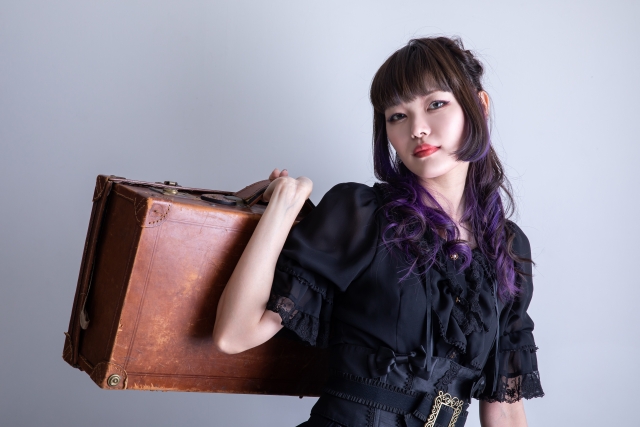
Japanese anime and internet slang are full of unique and fun expressions that can spice up everyday conversations.
In this article, we explore how to say “How are you?” in various creative ways, inspired by iconic anime characters and popular online trends. Each phrase is accompanied by its original context, character background, and practical examples for real-life use.
Whether you’re an anime fan or just curious about Japanese language and culture, these phrases will add a splash of personality to your conversations. Let’s dive in!
- 『How Are You?』
- 元気? (Genki?)
- どうしたの?死んだ魚の目してるよ (Dō shita no? Shinda sakana no me shiteru yo)
- なんか顔色悪くない? (Nanka kao iro warukunai?)
- 今日も絶好調か? (Kyō mo zekkōchō ka?)
- 気分、どう? (Kibun, dō?)
- ご機嫌いかがですか? (Gokigen ikaga desu ka?)
- ハイテンションすぎじゃない? (Hai tenshon sugijanai?)
- 大丈夫?まだ酔っ払ってるの? (Daijōbu? Mada yopparatte ru no?)
- 最近、どうよ? (Saikin, dō yo?)
- 行けてる? (Iketeru?)
- Additional Notes
- Recommended articles
- Quote
『How Are You?』
元気? (Genki?)
From: The Melancholy of Haruhi Suzumiya / Haruhi Suzumiya
Scene: Haruhi uses this casual greeting to cheerfully check on her friends.
Pronunciation: gen-kee
Real-life use: Perfect for greeting friends or colleagues in an informal setting. It’s simple yet full of warmth and friendliness.
どうしたの?死んだ魚の目してるよ (Dō shita no? Shinda sakana no me shiteru yo)
From: GANTZ / Kei Kurono
Scene: This playful line is used by Kurono to tease a friend who looks particularly drained.
Pronunciation: doe-shee-ta no? shin-da sa-ka-na no meh she-teh-roo yo
Real-life use: Use this humorously to poke fun at a friend’s tired appearance, but only with close friends!
なんか顔色悪くない? (Nanka kao iro warukunai?)
From: Silver Spoon / Yūgo Hachiken
Scene: Hachiken expresses concern for a friend’s health in this kind-hearted remark.
Pronunciation: nan-ka ka-oh ee-ro wa-roo-koo-nigh
Real-life use: A caring phrase for checking in on someone who doesn’t look well.
今日も絶好調か? (Kyō mo zekkōchō ka?)
From: ONE PIECE / Monkey D. Luffy
Scene: Luffy enthusiastically asks his crew if they’re at their best.
Pronunciation: kyo moe ze-kko-cho kah
Real-life use: Great for lifting the mood and encouraging positivity in a group setting.
気分、どう? (Kibun, dō?)
From: Neon Genesis Evangelion / Shinji Ikari
Scene: Shinji uses this phrase introspectively, often questioning his own or others’ feelings.
Pronunciation: kee-boon, doe
Real-life use: A thoughtful way to ask someone how they’re feeling, especially in a deeper conversation.
ご機嫌いかがですか? (Gokigen ikaga desu ka?)
From: BLEACH / Ichigo Kurosaki
Scene: Ichigo’s polite yet slightly sarcastic inquiry into someone’s mood.
Pronunciation: go-kee-gen ee-ka-ga des ka
Real-life use: Use this in a polite or formal context, such as greeting someone you don’t know well.
ハイテンションすぎじゃない? (Hai tenshon sugijanai?)
From: The Melancholy of Haruhi Suzumiya / Kyon
Scene: Kyon points out Haruhi’s overly high energy levels in his usual deadpan tone.
Pronunciation: high ten-shon soo-gee-ja-nigh
Real-life use: A lighthearted way to tease someone who’s overly enthusiastic.
大丈夫?まだ酔っ払ってるの? (Daijōbu? Mada yopparatte ru no?)
Source: Internet slang
Scene: Often used the day after a party to humorously check on a friend’s hangover.
Pronunciation: die-joe-boo? mah-dah yo-par-aht-te roo no
Real-life use: A funny and casual way to check in after a drinking session.
最近、どうよ? (Saikin, dō yo?)
Source: Internet slang
Scene: A casual greeting frequently seen in social media or online forums.
Pronunciation: sigh-keen, doe yo
Real-life use: Perfect for reconnecting with an old friend or initiating casual chat.
行けてる? (Iketeru?)
From: NARUTO / Naruto Uzumaki
Scene: Naruto encourages his comrades by checking on their condition mid-action.
Pronunciation: ee-keh-teh-roo
Real-life use: A motivating phrase to ask if someone is keeping up or managing a task well.
Additional Notes
If you want to practice pronouncing these phrases, try saying them slowly and focusing on syllable stress. Each phrase brings a touch of Japanese pop culture to your everyday interactions, making your conversations both fun and memorable!
Recommended articles
Quote
この動画の音声は音読さんを使用しています。





